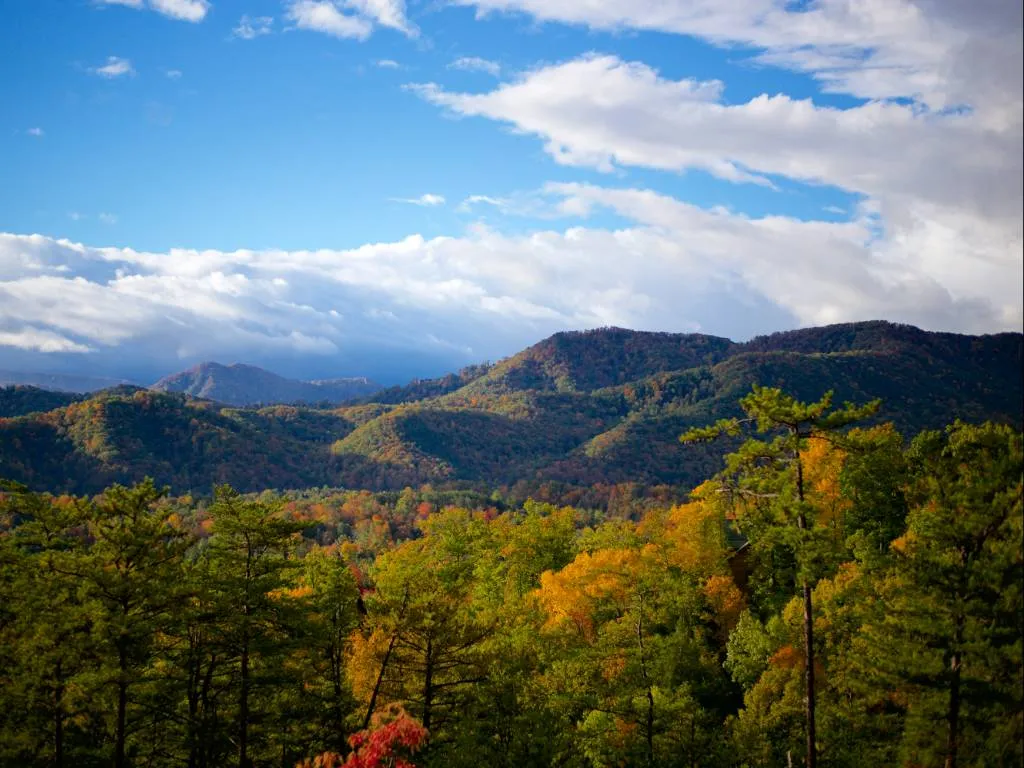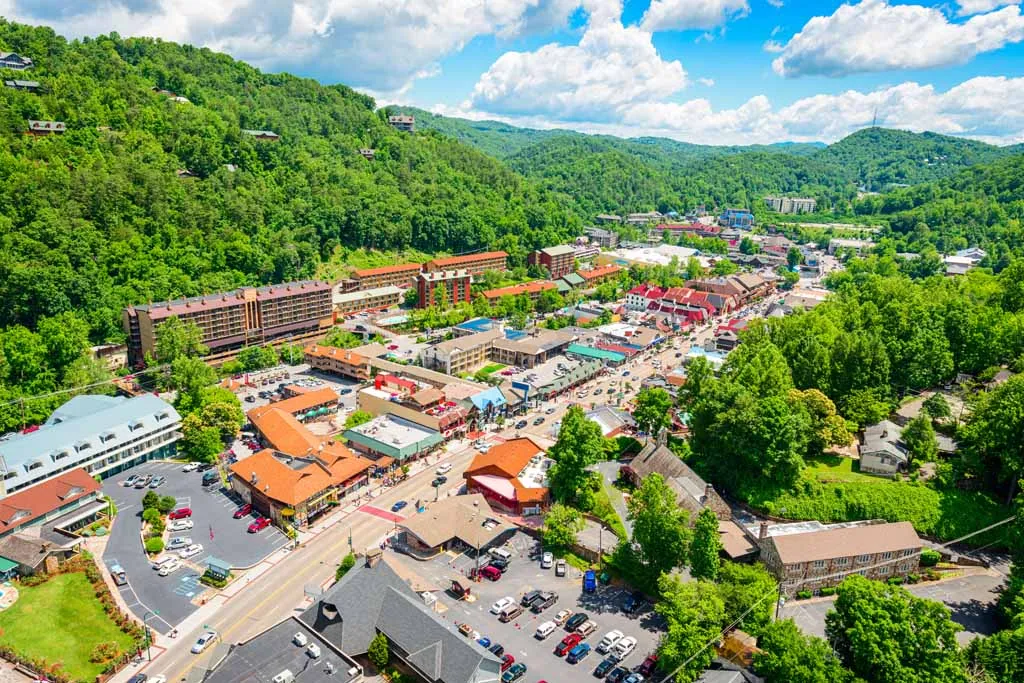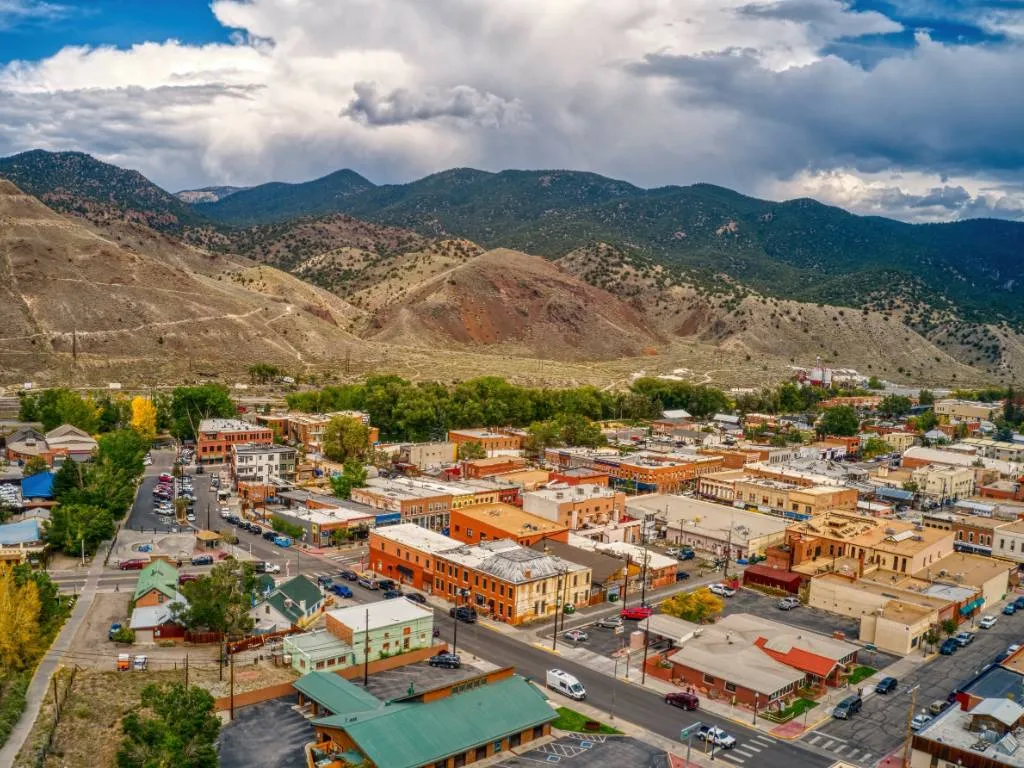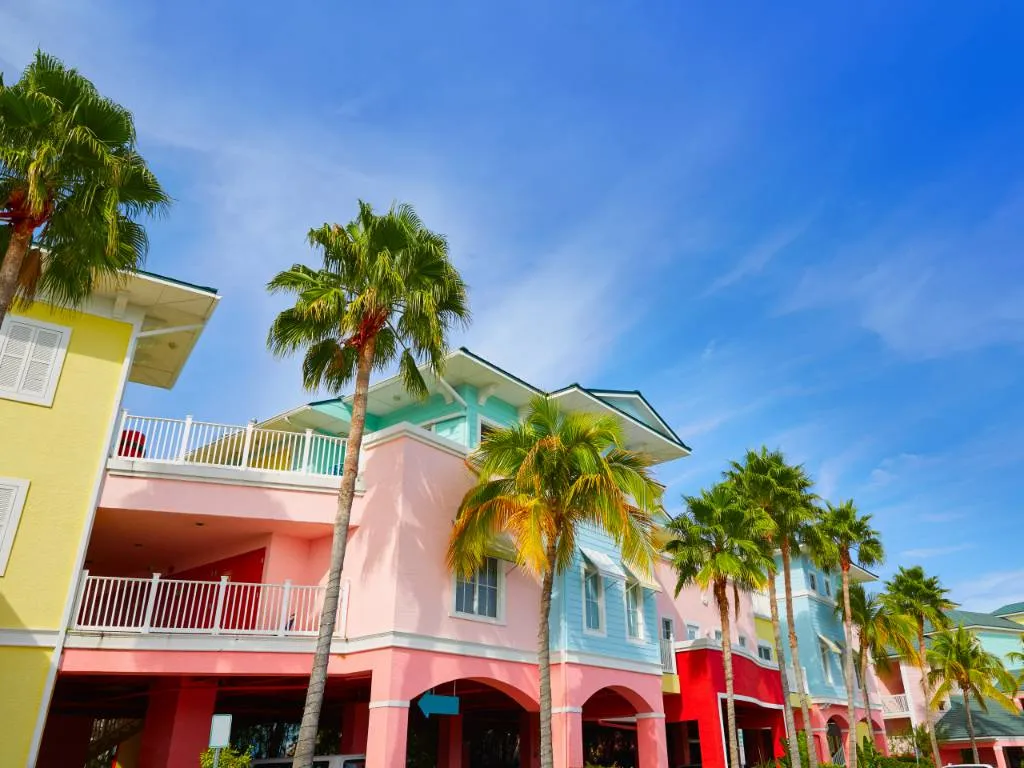10 Pros and Cons of Living in Blue Ridge, GA

Blue Ridge, located on the tri-state line between Georgia, Tennessee, and North Carolina, is just 90 miles north of Atlanta by Interstate 575. This charming mountain town is known for its luxurious cabins, breathtaking scenery, and abundance of outdoor activities.
The year 2022 saw Blue Ridge honored by Southern Living as one of the South’s best mountain towns. Blue Ridge is a paradise for outdoor enthusiasts, with its 106,000 forested acres, 300 miles of hiking trails, and 100 miles of trout streams.
Let’s check out ten pros and cons of living in Blue Ridge, GA
Pros of Living in Blue Ridge
1. Downtown Blue Ridge is exciting
The vibrant downtown area of Blue Ridge is home to numerous restaurants, bars, and stores. Stroll along East Main Street to the Bear Store for all your “bear necessities,” including rustic furniture, throw blankets, and mountain-themed trinkets. Check out the endless barrels of treats, games, and Huck-made wares at Huck’s General Store. Then you should stop by Oyster Bamboo Fly Rods and pick up some fishing equipment that was preferred by former President Jimmy Carter, or enroll in one of their seminars to learn how to create your own handcrafted bamboo rod.
There are a number of unique clothing businesses, as well as a dozen antique shops, in the downtown area. There’s plenty to do there to fill a whole day, but if you find yourself in need of a break, stroll over to the nearby Blue Ridge City Park and relax in the cool mountain air.
2. Take in the art at the Blue Ridge Mountains Arts Association and Arts Center
There is a large and active group of artists and crafters in Blue Ridge, which has contributed to the town’s well-deserved reputation. The Blue Ridge Mountains Arts Association and Art Center and the Blue Ridge Community Theater bring in musical performances, plays, and other forms of entertainment, while galleries in the downtown area foster a sense of community and promote awareness of local artists.
Take in one of the town’s Arts in the Park festivals if you’re in town over Memorial Day weekend or the second weekend of October.
3. Living costs are about the same as the national average
The cost of living index in Blue Ridge is 101.5, only 1% higher than the national average. The annual cost of living for a single person in Blue Ridge is $37,143. This includes accommodation, food, child care, transportation, healthcare, taxes, and other essentials.
However, the median home price is $471,808, which is higher than the national average.
4. Get a job in the manufacturing or health industry
Employment opportunities flourish in Blue Ridge. Recent projections place job growth in the region at 46.94%, substantially higher than the national average of 30.54%. Blue Ridge has a lower-than-average unemployment rate of 2.8%. This indicates that those who choose to make this city their permanent home will have no trouble finding gainful employment. It’s no wonder that Blue Ridge’s booming economy and low unemployment rate have made it a desirable place for a diverse range of businesses and workers.
Some of the city’s major employers include Mercier Orchards, Blue Ridge Manufacturing, Whitepath Fab Tech, Pulse Medical, Tri-State EMC, and Fannin Regional Hospital.
5. Winters are mild in the city
Having relatively warm winters is a major perk of life in Blue Ridge. Temperatures rarely drop below freezing, so there’s no need to prepare for snow or deal with hazardous driving conditions. The city only gets four inches of snow in a year.
While there are occasional cold snaps, you can generally count on pleasant weather throughout the year. That’s why Blue Ridge could be the perfect place for you if you’d rather not spend your winters slogging through snow.
6. Low property taxes
Property taxes in Georgia are very inexpensive despite the state’s high tax rates.
In Blue Ridge, the average effective property tax rate now sits at 0.87%. This ensures that you won’t have to stress about spending a fortune on yearly house maintenance costs.
The Homestead Exemption, available only in Georgia, can further reduce your property tax bill. With this, you can avoid paying taxes on some of the equity in your house.
Those on a fixed income or who are otherwise having trouble making ends meet may find this exemption particularly useful.
7. Enjoy the outdoors at Lake Blue Ridge or Chattahoochee National Forest
Those who aren’t afraid of getting wet can enjoy a variety of water sports at Lake Blue Ridge, including kayaking, canoeing, swimming, and stand-up paddling. If you’d like to take your time while exploring this stunning mountain lake, renting a pontoon boat is the way to go.
Many of us enjoy finishing a hike with a refreshing dip in a waterfall, and visits to Long Creek Falls, Falls Branch Falls, Sea Creek Falls, and Jacks River Falls do not disappoint in this regard. Blue Ridge is home to a number of breathtaking waterfalls that make for beautiful day trips.
Chattahoochee National Forest is a treasure of greenery, spanning 867,000 acres of mountains and woods, and is a great place to go hiking. The Appalachian Trail’s southern terminus at Springer Mountain is just 35 miles away by car, and from there the 2,190-mile trek to Maine begins.
Cons of Living in Blue Ridge
1. The crime and property rates are higher than the national average
Both violent and property crimes in Blue Ridge are significantly higher than national statistics. Blue Ridge has a far higher than average rate of violent crime, at 28.2, and a much higher than average rate of property crime, at 45.3, compared to a national average of 22.7 and 35.4 respectively.
If you choose to live in this city, be conscious of your surroundings and take extra measures to protect yourself, your family, and your property.
2. The humidity can be oppressive
The milder winters do not come without a cost, though.
Blue Ridge’s high humidity levels might make it feel much hotter than it actually is.
You might want to move to a place with a drier climate if you find that being sticky and sweaty is a nuisance.
Summertime may be extremely uncomfortable due to the high temperatures and muggy air.
When high temperatures are coupled with excessive humidity, the thermometer may read much above 100 degrees Fahrenheit.
3. High income tax rates
The high tax rates in Georgia more than make up for the state’s low cost of living. The top rate of income tax in Georgia is 5.75%, and the city also collects its own tax on earnings. As a result, you will have less of your yearly earnings to keep for yourself. Of course, Blue Ridge isn’t left out.
State taxes in Georgia are just slightly more than average compared to those in other states.
However, when neighboring states don’t impose a state income tax, it’s easy to feel like you’re losing a lot of money to the government while your pal just across the border keeps an extra five percent of their annual salary.
Final Thoughts
Blue Ridge offers a reasonable cost of living, outdoor recreational opportunities, low property taxes, and a thriving economy. However, the city also has a high crime rate, high income tax rates, and high humidity.






